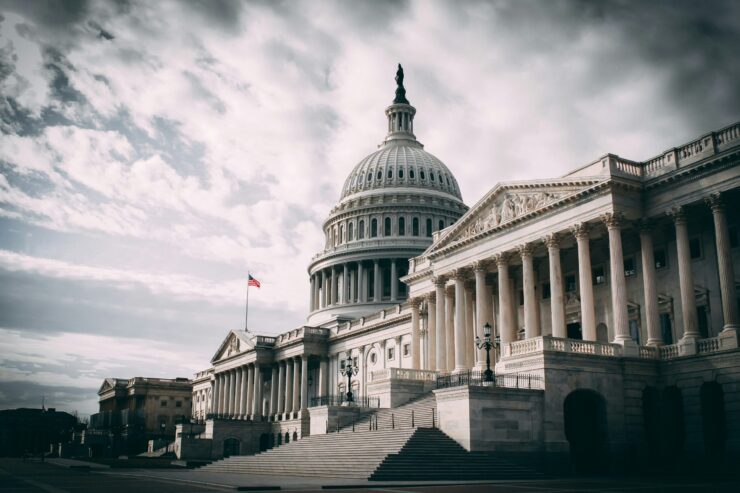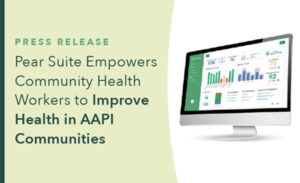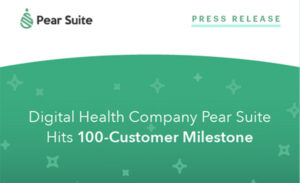The One Big Beautiful Bill Act (OBBBA), or H.R. 1, passed in early July 2025, is a sweeping federal budget and reform package that introduces major changes across healthcare, food assistance, and public benefits programs. Notably, it affects federal funding for Medicaid and the Supplemental Nutrition Assistance Program (SNAP), formerly known as food stamps.
While the bill has received significant media coverage, many community-based organizations (CBOs), health organizations, nonprofits, and community health workers (CHWs) are still asking: “What is the One Big Beautiful Bill?” and “How does it impact us and the people we serve?” This post aims to answer those questions and outline key changes, though the full impact on states and their program administration remains uncertain until new policies are in effect.
Medicaid: What’s Changing?
The OBBBA includes an estimated $863 billion in Medicaid cuts over the next 10 years, projected to reduce enrollment by 10.3 million people by 2034. Key changes include new work requirements, more frequent eligibility redeterminations, and new cost-sharing rules.
New work requirements
Beginning December 31, 2026, all states must require individuals ages 19 to 64 enrolling in or currently on Medicaid to meet one or more of the following each month:
- Be enrolled at least part-time in an educational program
- Earn income equal to or greater than 80 hours of minimum-wage work
- Volunteer or work a combined 80 or more hours
Exemptions include parents with dependents age 13 or younger, pregnant or postpartum women, medically frail individuals, and others meeting certain conditions. States will need additional data to verify compliance or exemptions. Failure to meet or prove requirements could result in loss of coverage.
Pear Suite’s platform can help community-based providers track compliance and ensure clients aren’t at risk of losing coverage.
New redetermination requirements
Starting December 2026, Medicaid expansion enrollees must re-verify eligibility every six months instead of annually.
With this change, CHWs will likely play a crucial role in helping eligible clients stay enrolled in Medicaid, ensuring that they don’t miss paperwork or deadlines or misunderstand the requirements. For example, promotores will be able to keep Medicaid-eligible members of the Hispanic community if they’re unable to understand the expectations due to a language barrier. States with outdated technology or a high population of residents with language barriers will likely see a spike in wrongful terminations as a result of this change.
New cost-sharing requirements
Beginning October 1, 2028, cost-sharing (e.g., co-payments or deductibles) will be required for Medicaid members with income between 100% of the FPL and 133% of the FPL. Cost sharing does not apply to inpatient, emergency, and certain other services. Providers may require payment of the deductible or cost-sharing amount before services are provided.
States may choose the appropriate amount to be collected, up to $35. The total amount of cost-sharing a family pays in a quarter or month cannot exceed 5% of their family income.
This change may cause people to defer care to avoid the additional cost. Since deferred care leads to worsening conditions and health outcomes, these clients may seek higher-cost care, like emergency care, later on or require additional prevention support from CBOs and CHWs.
SNAP: What’s Changing?
OBBBA also alters SNAP rules, including expanded work requirements, eligibility changes, and funding shifts.
New work requirements
Effective July 4, 2025, individuals ages 18 to 65 (with exceptions) must document at least 20 hours per week (80 per month) of work, volunteerism, or approved training to remain eligible. While effective immediately, many states are using the federally required four-month grace period before implementing the change.
Key exemptions to the work requirement include:
- Working 30 or more hours per week (or equivalent income)
- Meeting work requirements for other assistance programs (e.g., TANF)
- Parents with children under 14
- Caregivers for young children or children with disabilities
- People in rehabilitation programs
- Students (part-time or full-time)
- Pregnant individuals
- Adults 65 and older
- Those unable to work due to a disability
Previously, people over age 54 and parents with children under 18 were exempt. These groups are now included in the work requirement unless they qualify for another exemption.
New eligibility rules
Many non-citizen groups, previously eligible for SNAP, are now excluded, including refugees, asylees, trafficking survivors, and certain humanitarian parole recipients. Eligible non-citizen groups now include:
- U.S. citizens
- Certain lawful permanent residents
- Cuban and Haitian entrants
- Compact of Free Association citizens (Marshall Islands, Micronesia, Palau)
States have up to four months to implement these changes, though non-income eligibility updates may take effect at a household’s next recertification, which could be sooner. With these changes, many already at-risk individuals will need additional support accessing food, which is where CBOs and programs like Instacart’s Fresh Funds can help meet the new need.
New funding requirements
Starting in 2027, SNAP administrative costs will shift from a 50-50 federal-state split to 75% state and 25% federal. In 2028, states will pay based on over- or underpayments from 2025 and 2026; from 2029 onward, calculations will use data from three years prior to calculate their annual cost-sharing amount..
While this change does not impact individuals directly, SNAP benefits may become less available in states that choose to reduce funding as a result of the cost.
Why Medicaid Cuts and SNAP Changes Matter for CHWs and CBOs
The OBBBA shifts significant Medicaid and SNAP responsibilities from the federal government to states. The full effects remain to be seen, but community-based providers will continue to play a vital role, and many may face greater demand for services.
More documentation
With new redetermination cycles and verification requirements, clients face a higher risk of unintentionally losing coverage. CBOs and CHWs can work proactively to identify clients who may be impacted, and do more community outreach to educate non-client community members about the risk. Pear Suite’s care navigation platform can help flag and keep track of those at risk of losing coverage, supporting teams as they prioritize outreach.
More referrals
As eligibility narrows, CHWs will need robust referral networks to connect clients to alternative resources. Pear Suite’s closed-loop referral system enables community providers to not only recommend a service but also ensure that the client successfully accesses it.
More funding needs
Increased demand means more resources are needed. By tracking coverage losses and service disruptions, CBOs can leverage Pear Suite’s reporting to advocate for funding from coalitions, funders, and policymakers, and billing features to submit claims in states where CHW Medicare or Medicaid reimbursement benefits are available.
More care
More frequent redeterminations, recertifications, and disenrollments mean heavier workloads. Pear Suite streamlines administrative tasks, freeing CHWs to focus on client support and innovative care solutions.
The OBBBA is reshaping public and community health; how deeply remains uncertain, but the role of CHWs is more critical than ever. Pear Suite supports hundreds of CBOs in adapting to policy changes, securing reimbursements, and ensuring smooth operations.
Organizations and CHWs can schedule a call with our partnership team to learn how to navigate the OBBBA while continuing to deliver quality care.




